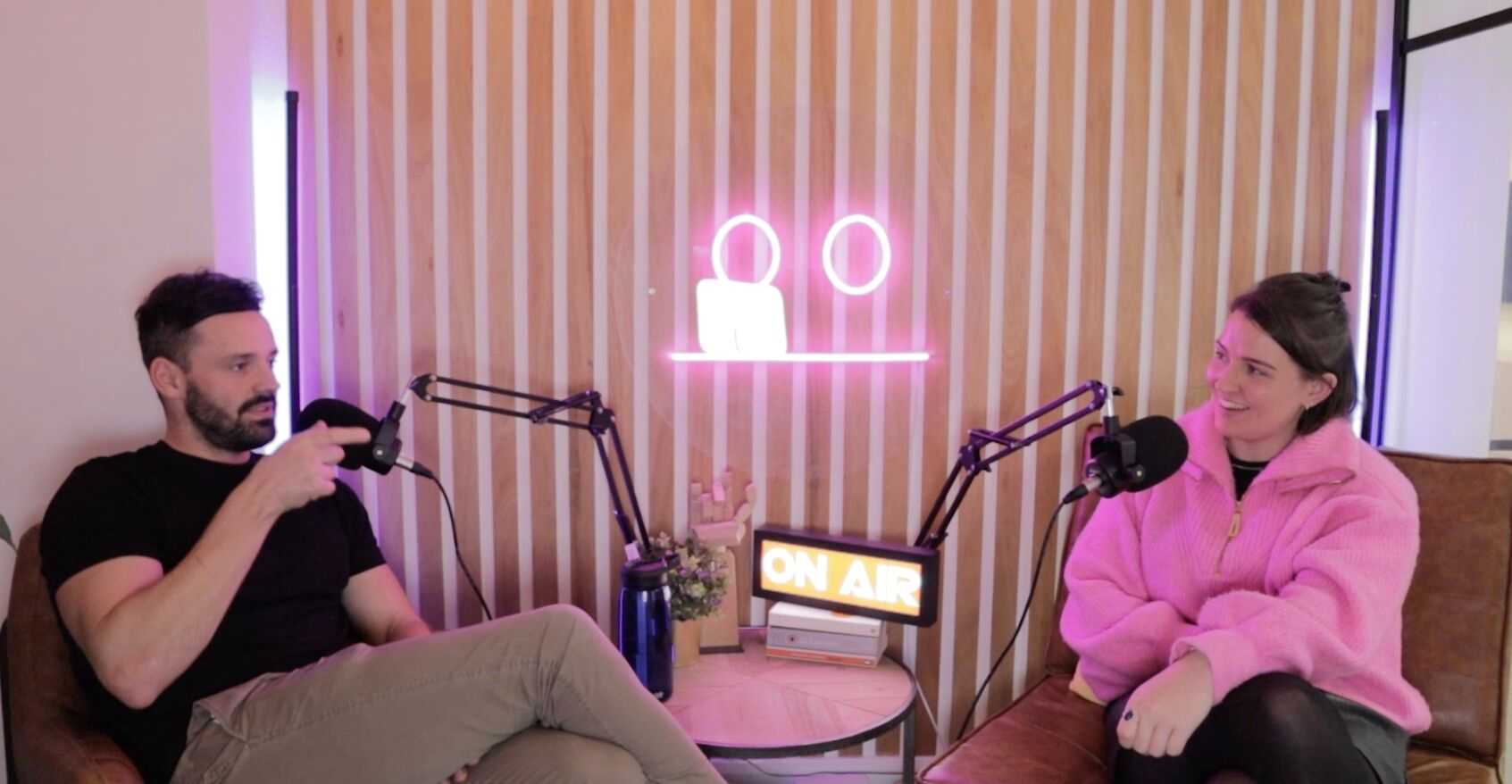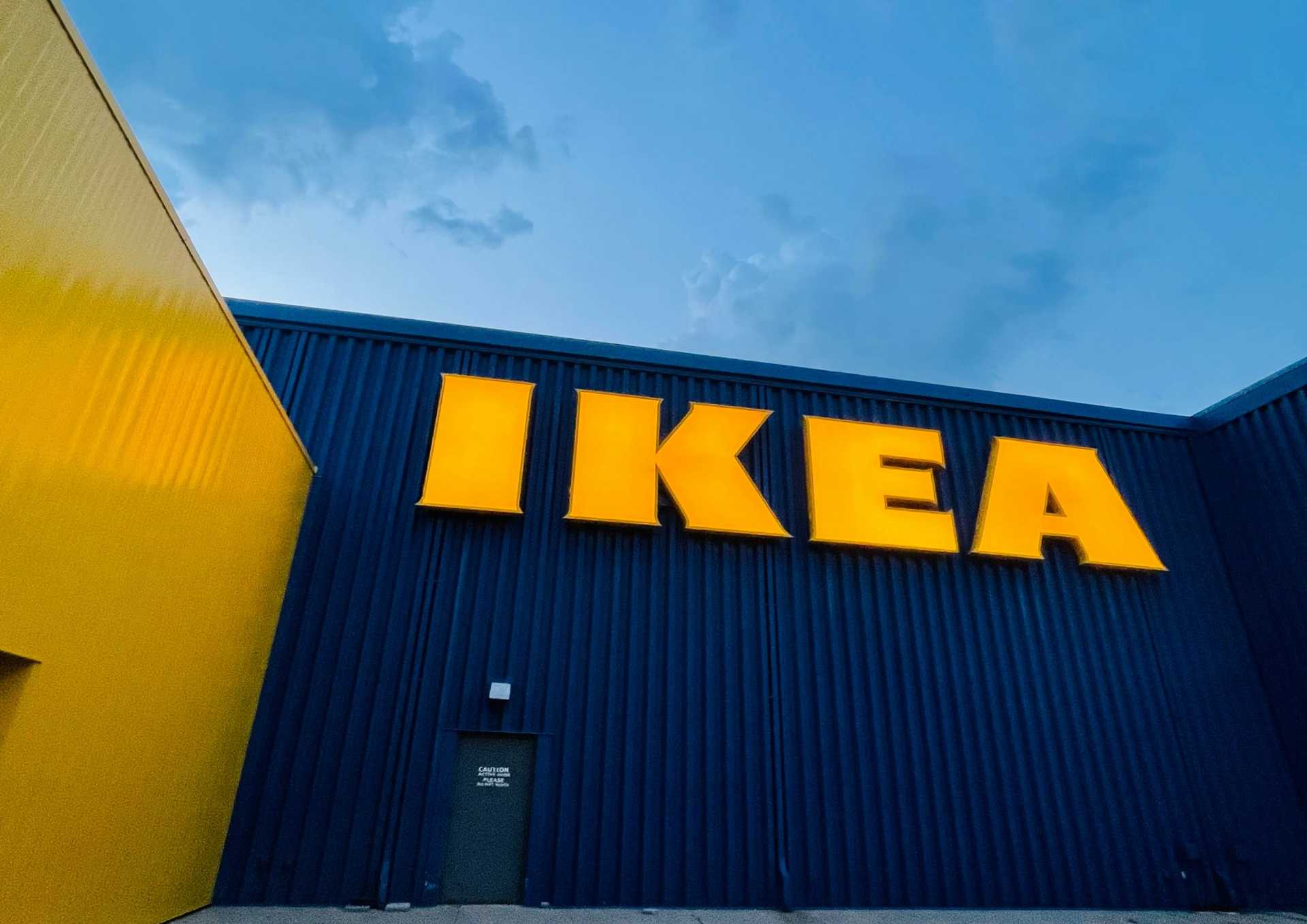resting pitch face episode 24: b-corp
In this week’s episode of Resting Pitch Face, Lee and Polly discuss B-Corp.
We’re delving into what it means for businesses and why Flaunt have decided to take the journey to B-Corp.
Listen on Spotify or Apple Podcasts or subscribe to our YouTube channel for weekly episodes. See below for a full transcription of episode 24.
transcript
Polly: No Dan today. You’ve got me again. I’m very on-brand. Working well in the room… Quite a nice topic today. So, it’s a project that we’ve been working on, and we’ve been looking into for the last sort of… Well, looking into for probably the last year-ish, but actually started putting into place and working through in the last four months or so, is B-Corp.
So, for anybody that’s listening to this who doesn’t know what B-Corp is, it’s sort of um, a worldwide movement that you certify your business as a B-Corp business, and you basically get a badge. And what that means is you filled out quite a long assessment. Quite a long assessment is definitely an understatement.
Lee: Very, very long assessment.
Polly: But it just shows that you are practicing business in a decent way, and qualifying for the badge by carrying out I guess decent business, and operating in quite an ethical manner. So, it’s something that we are working towards at the moment, and are very close to submitting our assessment. How many hours of looking at that has been?
But I think it’s just quite an important thing to talk about why we’re doing it, why we think it’s important, what we think it adds to a business, and what it can tell you about other businesses that have done it as well. So, I guess you as a business owner, you’ve chosen to go ahead and be part of B-Corp and work towards it. Why?
Lee: Good question. I think our circumstances might be slightly different to other businesses in that we’ve been operating in that way majoratively since we set up. I think we… Well, seven years ago we were doing things different. It’s become a little bit more of the way to do things now. I think the B-Corp process just kind of validates that a little bit from an internal perspective. And I think from a client perspective as well.
It narrows the field and the due diligence that you have to do, if you are interested in working with a business that are operating well, doing the right things, are conscious of their social impact, their environmental impact, these things are already on a plate. You can see that without having to really do that much digging.
And I think from a business standpoint, that’s gonna be important because the brands that we want to be working with that are big tier 1 brands, you added us, for example, are gonna have that as a prerequisite. If you’re not B-Corp, we don’t wanna work with you ultimately. So, there’s that angle. But yeah, I think it just…
To us, it means validating what we already kind of knew, and putting things in place perhaps that we haven’t really formalized until going through this process. Small tweaks, small things, more conscious efforts in areas that we can then contribute to the B-Corp success.
Polly: Yeah, I think I’ve definitely noticed, as I’ve been doing the assessment, there’s a lot of things where we’ve gone, “Oh, we do that.” But because it’s got the word formalized in it, we’ve then had to, like, physically write that down, or put in a regular meeting or like, you know, something that does make it actually a part of our day-to-day.
Which there’s not many things though that we’ve come across and gone, “Ooh, no, we absolutely do not do that. We’d have to start from scratch.” And I don’t think there’s many businesses that would be in that position where like without doing anything, we’ve scored really high on the assessment without having to put any extra things in place, or look at what we’re doing and change anything.
Whereas I think a lot of businesses would come in and then it would be a process to get them to a decent level, which obviously proves that we’re doing it for the right reasons where others might be doing it just so that they can have the badge. Whereas otherwise, they might not have ever bothered with those practices before. Whereas we’ve started with the practices before we’ve even thought about the badge.
Lee: Yeah. I think in that respect, it’s quite humbling that going through this process that is how we’ve come out the back of it. I think with the B-Corp movement, I suspect that there are companies that are looking at it because they feel like they wanna be in that club. And I also think there are gonna be companies that have a much steeper curve in which they need to make changes, but that’s all positive.
Polly: Yeah. No, definitely.
Lee: That’s the kind of purpose behind it. I think it makes you really take a look at things that perhaps would pass you by as well.
Polly: I’ve seen a few things recently, and I think it’s because I’ve been looking at it more and more since we’ve started, like, working in that space, and working towards it. Where a lot of people are actually quite critical of B-Corp because of the fact that they think it’s just a badge, and it’s just businesses that… Because you don’t have to score really well on every single topic. Your environmental performance could be terrible, but you could treat your staff really well, so you could still come out the other side of it.
And a lot of people, if you say B-Corp to them, they instantly think more around, like, sustainability and environmental issues. Whereas that’s not necessarily it, which brands that might not be doing that well in that area kind of, like, automatically given this, like, eco status was sort of one of the things that I was reading about because that’s what people associate with B-Corp. Whereas I actually don’t think that is the main purpose of it. It’s more about just being decent people, isn’t it?
Lee: Yeah. I think that a lot of the initial people that went through and were certified, and a lot of the initial companies that were part of the pilot program were big FMCGs, and companies that had a responsibility to improve certainly when it comes to the environment because they were having the biggest contributions.
So, like, yeah, they were a big pharmaceutical company that was one of the first. I can’t remember who it was off the top of my head. It might have been Reckitt that were one of the pilots. You think about the environmental impact that those guys have in terms of the products that they’re putting out, the packaging that they’re using, and all that kind of stuff. That’s how it sort of started.
Since then, I think it’s evolved more in line with the business for good side of it, and people looking at it as a way of making sure that they’re really taking a view of how they’re operating as opposed to just assuming. And I think that’s something that we sort of perhaps we’re doing until we decided to go through this process.
Polly: Yeah. Doing for the right reasons.
Lee: Yes. We were doing things well. Yes, we were doing things that we thought were the right things to do, but they were also things that just pass you by.
Polly: Yeah. Yeah, I think until you start doing it, and you realize you start taking the boxes. Like you actually realize how many decent things we do that other businesses don’t necessarily. And I think we’ve talked about before how it’s becoming… We’ve talked about this in the B-Corp discussions that we’ve had internally how it’s becoming more of, like, a standard practice that actually more businesses are working towards that just being, like, the baseline for operating as a business.
And it’s becoming I think more expected. As of today actually, just popped into my head because I definitely read this earlier, A thousand B-Corps in the U.K. A thousand today.
Lee: Yes. Good milestone.
Polly: Yeah, good milestone. Kudos for doing this. Just remembered that.
Lee: Yeah. Now that is a good relevant piece of news.
Polly: Yeah. Yeah, definitely. But then still that… I mean, that number proportional to the number of businesses in the U.K. is absolutely minimal. But hopefully, it’s becoming more of a norm.
Lee: I think the whole movement and the whole conversation when it comes to business, I think specifically for us opens up a lot of opportunities for changing things. Like, the theme or a theme that we’ve discussed on this podcast a lot is pitching. I think pitching, for example, and being B-Corp certified gives you the opportunity to change that process slightly.
Like, imagine saying we’ll put the hours that we would spend to pitch for you into a charitable cause instead as part of our B-Corp journey, and as part of our ongoing commitment to B-Corp. That is a platform for change in a positive way.
Polly: Definitely.
Lee: And I think there’s loads of peripheral things like that that come out of the back of it.
Polly: I think it’s just a great way for us to sort of demonstrate what we genuinely believe in as a business as well, and the way that we are doing it, which you know, not necessarily everybody else would. It would often just be like a couple of people taking it on board and action [SP] themselves bringing in, like, a wider team. I’ve actually really enjoyed that part of it.
So, like the workshop, we did with sort of like our B-Corp committee that includes people from every single level of the business. Really refreshing to actually hear firsthand from everybody how they see the business, and how those things actually genuinely affect them, and why they’re so important to be part of who we are as Flaunt.
Lee: Yeah. Everybody’s got a different perspective as well.
Polly: Yeah.
Lee: So, it’s good to get that view.
Polly: Yeah, it is. Because you see all those different bits. You know, what I see as like something super important, somebody else might see right, you know, really low down on their list. But another thing that we’re actioning is actually their high priority or whatever else and affects them in this way. And I think being able to have all those different people involved in the process as well actually really solidifies that, like, business for good, and doing it for the people, and actually improving the way that we are operating as much as we can in every sense of it.
Lee: Yeah. I think it’s made up of a lot of like micro-movements that have a bigger impact. Like, if you think about, like, 1,000 businesses, yes, in the grand scheme of things, that’s a small amount of businesses in the U.K. But from thinking about it from like a, even like a climate perspective, for example, the amount of change that that could potentially have.
Polly: Yeah. Because some of those are huge businesses. They’re not just like, you know, a thousand coffee jobs.
Lee: But it opens up that conversation, doesn’t it?
Polly: Yeah.
Lee: With more people that are actually involved but might not be B-Corp.
Polly: Yeah. That’s it. And also those circles that those people are working in. Like you said, there’s some bigger organizations that will only work with B-Corps now. And that is, you know, they might only work with agencies at B-Corp, for example. So, if you are not there, you are missing out on a huge part of, you know, a huge area of business, and a lot that you could tap into potentially from a business point of view.
So, hopefully, by these bigger companies putting that in place, and forcing people to go down this route, it forces more businesses to go down the decent route, and do everything for the right reasons, and prove that they’re doing it for the right reasons. Because it’s not [inaudible 00:12:21] something you can rely on either. Is it that assessment?
Lee: Well, it’s third-party validated, isn’t it?
Polly: That’s it.
Lee: Flipping that on its head as well. Do not think that in the future maybe another three, four, or five years down the line, job seekers and candidates will want to work for companies that are part of that.
Polly: Yes. Definitely. Like, imagine comparing two, like, flight companies offering you the same thing, offering you the same money, same role, whatever else. But if you know one is actively part…
Lee: Publicly.
Polly: … of B-Corp and publicly, yeah. Part of this movement that proves that they’re doing things for the right reasons, why the hell would you not wanna be part of that?
Lee: It would tip the scales I think for me.
Polly: Yeah, definitely. I think I would actively look for it because, I mean, I sort of knew about it. I’ve been looking at it for a few years, and I sort of brought it to you when I… Well, almost when I first started actually, because I could instantly see that it was already happening just without the badge. But it’s definitely something that I would look for because every company can talk the talk, but you’ve got to actually prove it for this.
Lee: Yeah. It validates a lot of things in a lot of ways with a lot of different use cases.
Polly: Yeah, definitely. Well, B-Corp soon.
Lee: Yep.
Polly: Watch this space.
Listen on Spotify or Apple Podcasts or subscribe to our YouTube channel for weekly episodes.





